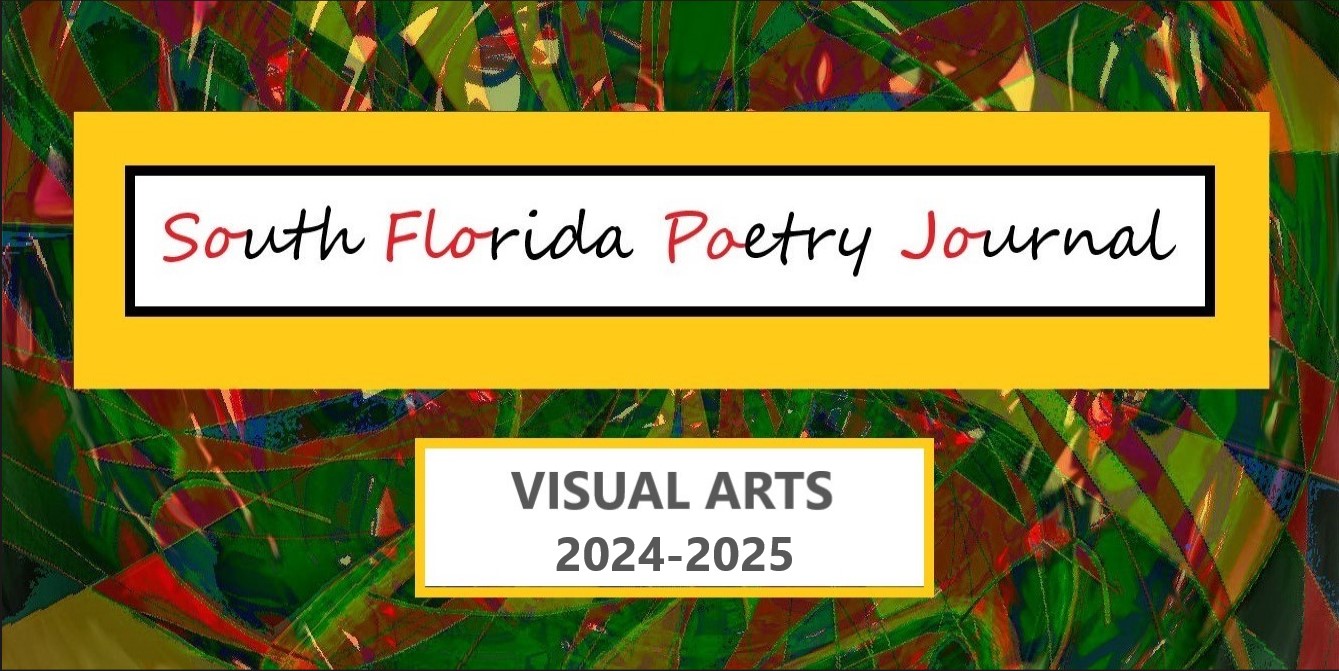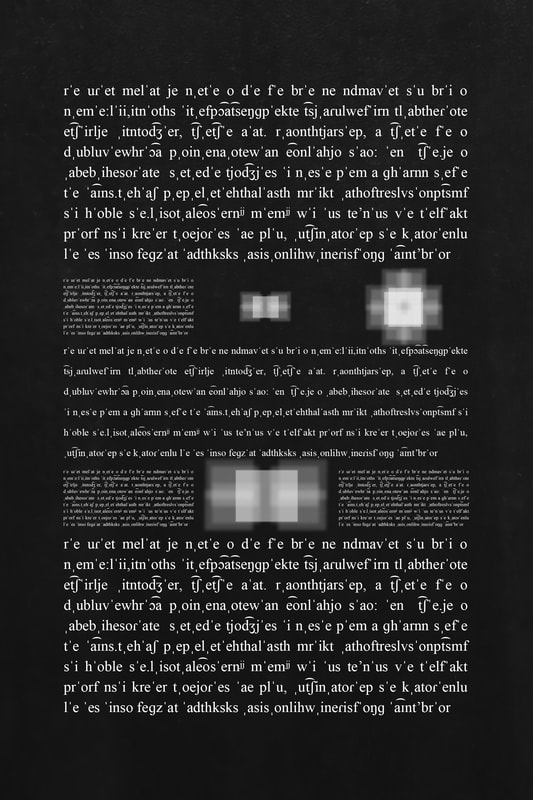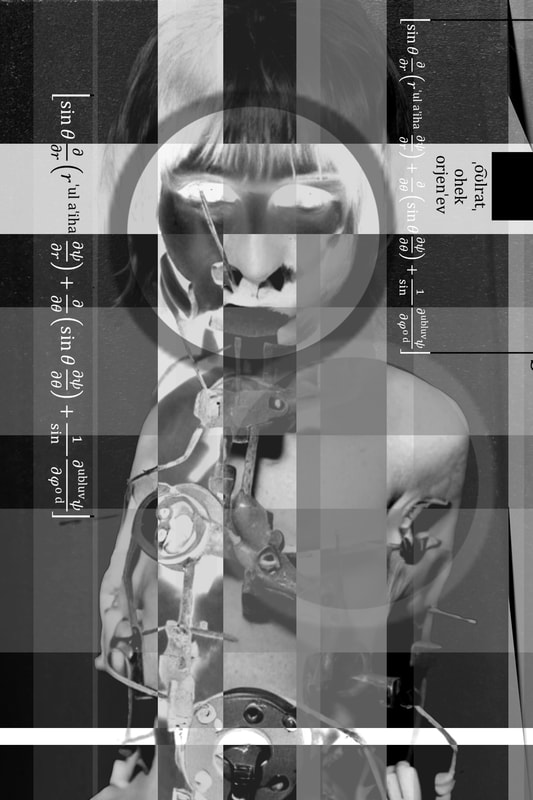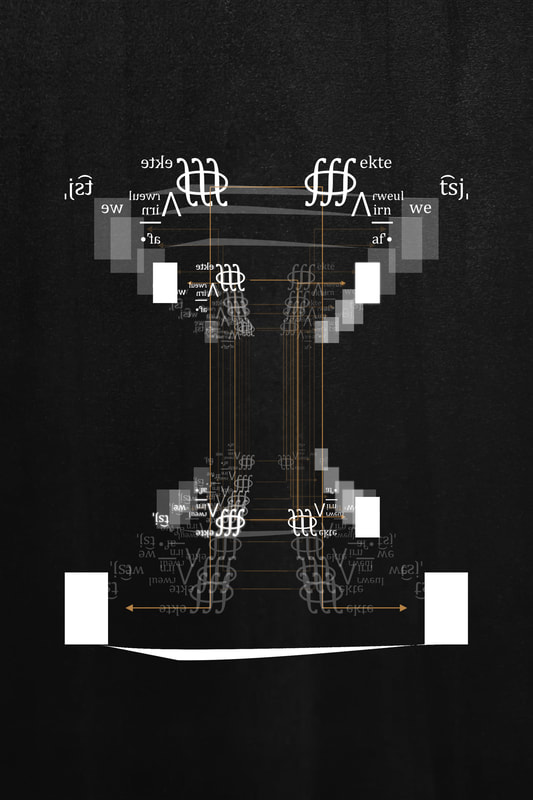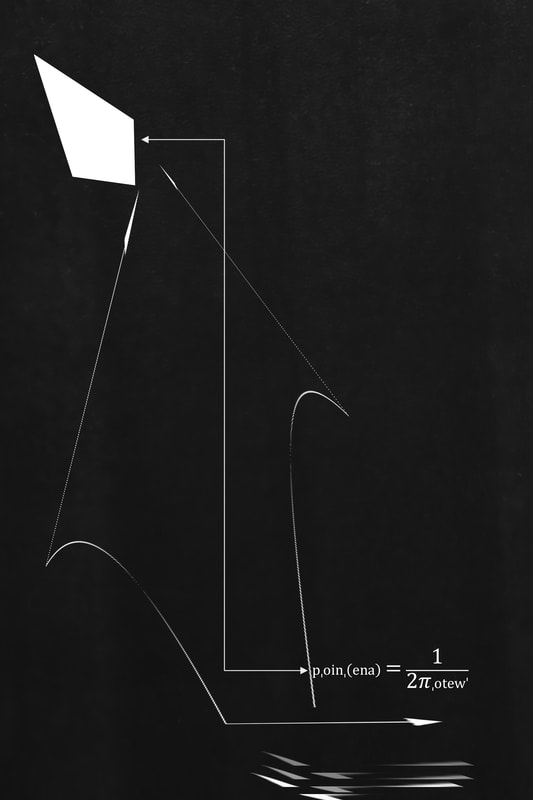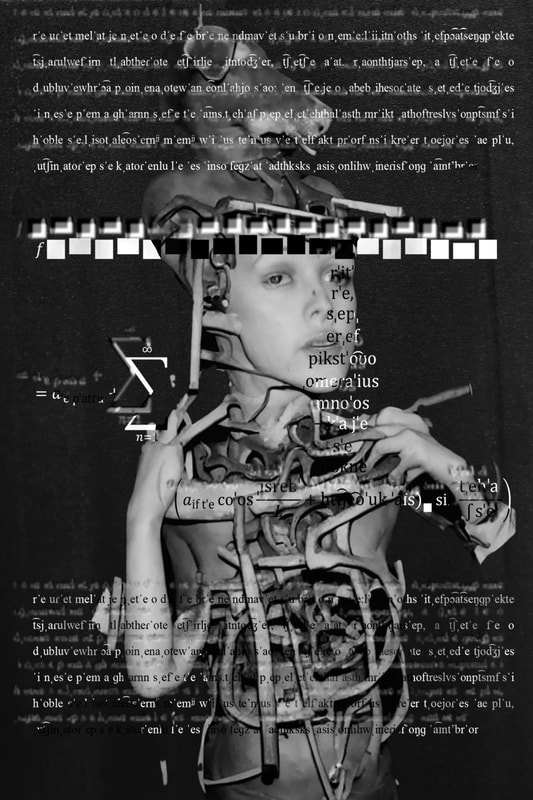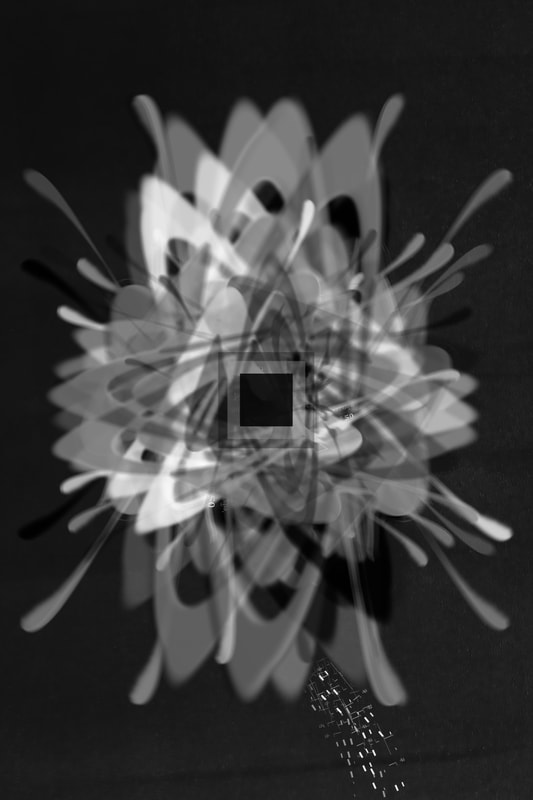Kristine Snodgrass, Visual Arts Editor
To have your visual art considered for a future issue please contact [email protected]
May 2024
Amy Rodriguez, Karla Van Vliet, Maria Damon
Amy Rodriguez, Karla Van Vliet, Maria Damon
|
Introduction
Glitchy Womyn Anthology 2022-2023 A glitch is typically considered an error, a mistake. This anthology explores how glitch can be used to guide an aesthetic, to process a thing, to make change. The women in this book demonstrate how they interpret and play with glitch in their works. The works are varied and surprising: textile to skin, ecology, collage to digital alteration. For me, a connection is unearthed here. As women, we are most familiar with concepts of error and mistake. The parameters applied to our gender performance and being have ultimately resulted in perceived error, and those mistakes have been scrutinized for years. What error did we create today? How have we been judged and even persecuted by error? What interests me is how those challenges are turned into creation. In this book, women reimagine what it is to be an error. We are empowered by art, craft even. I will always maintain the glitch is a building up. Here you will see themes of ecology, women’s bodies, faces, skin, but the work here is not just about earthly bodies. It is a pastoral of color, texture, composition, and fire. The energy in the works represented in this anthology is undeniable. I invite you to be a viewer in collaboration with this book, however that looks to you. Kristine Snodgrass Tallahassee, FL 10/12/2023 |
February 2024
Andrew C. Wenaus & Kenji Siratori
Andrew C. Wenaus & Kenji Siratori
Note on the book:
LIBRETTO LUNAVERSITOL is a collaborative work by Andrew C. Wenaus and Kenji Siratori written in patamathematical formulae and International Phonetic Alphabet. A xenopoetic musical score and work of visual poetry that looks to the Zaum experiments of Velemir Khlebnikov and Alexei Kruchenykh, the book speculates on a sudden emergence of a super-hybrid technical language autopoietically organizing itself into existence outside the experience, knowledge, or access of humans. In this sense, the book can be thought of as an extended analogue to or visualization of the ways autonomous informational processes optimize themselves in the black box of big data in ways that we cannot understand without undergoing similar emergent transformations ourselves. Steadfastly opposed to purity and essentialism the book calls for the entirety of time and space and its attendant objects, processes, and concepts to parasitize literature and poetry. From this super-hybridity will ultimately emerge the song of Zaum, the technical word as such, and quantum writing. LIBRETTO LUNAVERSITOL is forthcoming from Calamari Archive in 2024 and will be accompanied by a musical score by Wenaus and composer, soprano, and keyboardist Christina Willatt.
Bios:
ANDREW C. WENAUS is a Canadian writer, poet, visual artist, and literary theorist. He is the author of The Literature of Exclusion: Dada, Data, and the Threshold of Electronic Literature (Lexington, 2021) and Jeff Noon’s Vurt (Palgrave Macmillan, 2022). Recent creative pieces include Declaration of the Technical Word as Such (Sweat Drenched Press, 2023) and Ω - 1 Chronotopologic Workings (Schism Press, 2023). He is the editor of the experimental writing anthology Official Report on the Intransitionalist Chronotopologies of Kenji Siratori: Appendix 8.2.3 (Time Released Sound, 2023). His critical writing has appeared in James Joyce Quarterly, Extrapolation, Science Fiction Studies, Paradoxa, Journal of the Fantastic in the Arts, Irish Journal of Gothic and Horror Studies, Foundation, English Studies in Canada, Foundation, The Journal of Popular Music Studies, Big Other, and Electronic Book Review. He is also a composer and, with Christina Willatt, has written, recorded, and performed electro-acoustic scores for theatre, dance, film, and contemporary classical ensemble. He teaches at the University of Western Ontario.
KENJI SIRATORI, a trailblazing Japanese cyberpunk author and multimedia artist, is renowned for his avant-garde contributions to literature. Embracing the title of a "quantum writer," Siratori delves into the fusion of human consciousness and cutting-edge technology in his works. His writings, characterized by experimental narratives and surrealistic themes, challenge conventional storytelling, propelling him into the forefront of the avant-garde literary movement. Siratori's exploration of the interface between humanity and artificial intelligence defines his distinctive position as a visionary in the realm of quantum writing.
LIBRETTO LUNAVERSITOL is a collaborative work by Andrew C. Wenaus and Kenji Siratori written in patamathematical formulae and International Phonetic Alphabet. A xenopoetic musical score and work of visual poetry that looks to the Zaum experiments of Velemir Khlebnikov and Alexei Kruchenykh, the book speculates on a sudden emergence of a super-hybrid technical language autopoietically organizing itself into existence outside the experience, knowledge, or access of humans. In this sense, the book can be thought of as an extended analogue to or visualization of the ways autonomous informational processes optimize themselves in the black box of big data in ways that we cannot understand without undergoing similar emergent transformations ourselves. Steadfastly opposed to purity and essentialism the book calls for the entirety of time and space and its attendant objects, processes, and concepts to parasitize literature and poetry. From this super-hybridity will ultimately emerge the song of Zaum, the technical word as such, and quantum writing. LIBRETTO LUNAVERSITOL is forthcoming from Calamari Archive in 2024 and will be accompanied by a musical score by Wenaus and composer, soprano, and keyboardist Christina Willatt.
Bios:
ANDREW C. WENAUS is a Canadian writer, poet, visual artist, and literary theorist. He is the author of The Literature of Exclusion: Dada, Data, and the Threshold of Electronic Literature (Lexington, 2021) and Jeff Noon’s Vurt (Palgrave Macmillan, 2022). Recent creative pieces include Declaration of the Technical Word as Such (Sweat Drenched Press, 2023) and Ω - 1 Chronotopologic Workings (Schism Press, 2023). He is the editor of the experimental writing anthology Official Report on the Intransitionalist Chronotopologies of Kenji Siratori: Appendix 8.2.3 (Time Released Sound, 2023). His critical writing has appeared in James Joyce Quarterly, Extrapolation, Science Fiction Studies, Paradoxa, Journal of the Fantastic in the Arts, Irish Journal of Gothic and Horror Studies, Foundation, English Studies in Canada, Foundation, The Journal of Popular Music Studies, Big Other, and Electronic Book Review. He is also a composer and, with Christina Willatt, has written, recorded, and performed electro-acoustic scores for theatre, dance, film, and contemporary classical ensemble. He teaches at the University of Western Ontario.
KENJI SIRATORI, a trailblazing Japanese cyberpunk author and multimedia artist, is renowned for his avant-garde contributions to literature. Embracing the title of a "quantum writer," Siratori delves into the fusion of human consciousness and cutting-edge technology in his works. His writings, characterized by experimental narratives and surrealistic themes, challenge conventional storytelling, propelling him into the forefront of the avant-garde literary movement. Siratori's exploration of the interface between humanity and artificial intelligence defines his distinctive position as a visionary in the realm of quantum writing.
